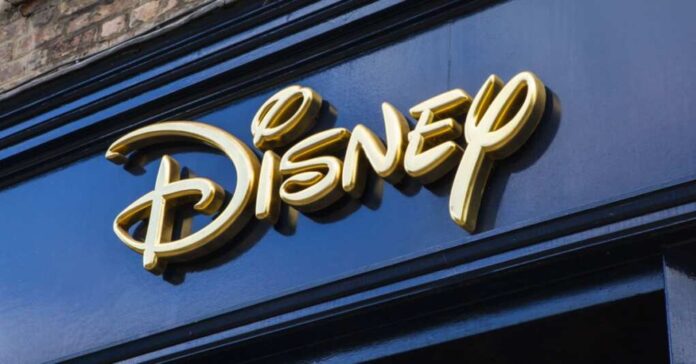
In a world where corporate giants and political titans clash, Disney’s own is embroiled in a drama worthy of its prime-time special. Under the watchful eyes of investors, the entertainment behemoth is scrambling to prove that it can navigate turbulent waters, all while locked in a high-stakes proxy duel with none other than activist investor Nelson Peltz.
The recent settlement regarding the Reedy Creek Improvement District/Central Floridia Tourism Oversight District finally allows Disney to spill the beans on its grand plans for park expansions. With its annual meeting looming on April 3, Disney saw a slight uptick in shares, perhaps signaling a sigh of relief from investors who were starting to wonder if Mickey Mouse had lost his magic touch.
As per the settlement’s terms, Disney has conceded to nullifying a 30-year development strategy hastily approved a year ago to circumvent opposition from the newly endorsed DeSantis-backed board. Consequently, Disney is obligated to adhere to an earlier, more restricted land-use plan, which still affords the company leeway to expand its operations by constructing new attractions and lodging facilities.
Before the resolution, Disney hesitated to unveil detailed large-scale development plans due to the ongoing legal skirmish, as revealed by insiders familiar with the matter.
The conflict between Disney and Governor DeSantis started in early 2022 when Disney publicly denounced Florida’s Parental Rights in Education bill, following pressure from LGBTQ employees and advocacy groups. This legislation, championed and enacted by Florida Governor Ron DeSantis, sparked considerable controversy, earning the moniker “Don’t Say Gay” bill from its detractors, as it prohibits instruction on gender and sexuality in educational institutions.
DeSantis launched a vehement attack on Disney, labeling it a “woke corporation” disconnected from the concerns of Florida families. During DeSantis’ campaign for the Republican presidential nomination, he expressed concerns regarding Disney’s policies and practices.
Tensions reached a climax last year when the Republican-dominated Florida legislature passed legislation stripping Disney of its authority over the Reedy Creek Improvement District, a tax entity established in the late 1960s that had granted Disney extensive governance control over the land and infrastructure of Walt Disney World for over five decades.
The district’s supervisory board has undergone a restructuring process, resulting in the governor being bestowed with the responsibility of appointing its members. However, concerns have been raised regarding the appointment of political allies and donors to the board.
Last year, Disney CEO Bob Iger condemned DeSantis’s assaults on the district as detrimental to business and the state of Florida, emphasizing the substantial investments and job opportunities at stake. He called DeSantis’ attack “ant-business” and “anti-Florida.” Despite the criticisms, DeSantis’ office states that no corporation should be its own government.
Now that the legal matter has been resolved, DeSantis and his office have taken a conciliatory stance toward Disney and expressed optimism about negotiating a new expansion plan with the company.
According to Jeff Brandes, a former Republican state senator in Florida, the resolution of their legal disputes is pivotal for Disney, enabling it to refocus on long-term strategies. Brandes emphasizes Disney’s penchant for strategic planning, suggesting that prolonged project delays not only harm Disney but also have adverse ramifications for Florida.
In January, a federal lawsuit filed by Disney alleging retaliatory actions by DeSantis and his allies for opposing the legislation restricting classroom discussions on gender identity and sexual orientation was dismissed by a judge.
As part of Wednesday’s settlement, Disney has postponed a planned appeal to facilitate negotiations for a new development agreement and address other outstanding issues with the state.
Rick Foglesong, an emeritus professor of political science at Rollins College, observes that recent changes in the composition of the district’s board indicate a thaw in relations between Disney and DeSantis. Foglesong suggests that both parties benefit from ending the deadlock, with DeSantis claiming victory, Disney resuming its investment plans, and potentially reducing pressure from cultural critics targeting Disney.














